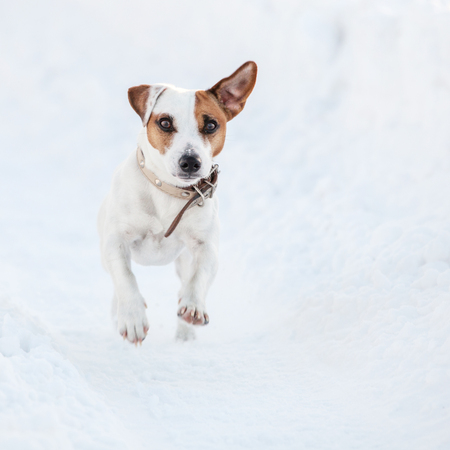Difficulty Breathing
If your pet is panting excessively, gasping for air, or making unusual respiratory sounds, it could indicate a life-threatening emergency that requires immediate veterinary attention.
Signs of Breathing Difficulties in Pets
Breathing problems can manifest in different ways. Here are some signs to watch for:
| Sign | Description |
|---|---|
| Excessive Panting | More intense and prolonged than normal, even when not hot or after exercise. |
| Gasping for Air | Your pet appears to be struggling to get enough oxygen. |
| Noisy Breathing | Wheezing, choking, or other abnormal sounds when breathing. |
| Pale or Blue Gums | A sign of oxygen deprivation that requires urgent care. |
| Extended Neck or Open-Mouth Breathing | Common in cats, indicating serious respiratory distress. |
Possible Causes of Difficulty Breathing
There are several reasons why your pet may have trouble breathing:
- Allergic reactions: Swelling of the airways due to allergens.
- Heart disease: Fluid buildup can make breathing difficult.
- Lung infections: Pneumonia and other infections can restrict airflow.
- Foreign objects: Something stuck in the throat blocking airflow.
- Heatstroke: Overheating can cause rapid, labored breathing.
What to Do If Your Pet Is Struggling to Breathe
If you notice any of these symptoms, take immediate action:
- Stay calm: Your pet can sense stress, which may worsen their condition.
- Avoid unnecessary handling: Too much movement can increase distress.
- Check for obstructions: If safe, look inside your pet’s mouth for foreign objects.
- Keep them cool and comfortable: Move them to a quiet place with good air circulation.
- Seek emergency vet care immediately: Breathing issues require urgent medical attention.
If your pet is experiencing difficulty breathing, do not wait. Get them to an emergency vet as quickly as possible.
2. Severe Injuries or Trauma
Accidents can happen in the blink of an eye, and when they do, your pet may suffer from severe injuries that require immediate medical attention. Whether it’s a deep wound, a broken bone, or visible pain from a serious accident, knowing when to rush to the emergency vet can make all the difference.
Signs Your Pet Needs Emergency Care
If your pet experiences any of the following signs after an accident, seek emergency veterinary care right away:
| Sign | Description |
|---|---|
| Deep Wounds or Excessive Bleeding | If your pet has a deep cut that won’t stop bleeding or an open wound exposing muscle or bone, immediate care is needed. |
| Broken Bones or Limping | If your pet is unable to put weight on a limb, shows obvious deformities, or cries out in pain when moving, it could indicate a fracture. |
| Hit by a Car or Serious Fall | Even if there are no visible injuries, internal damage can occur. Always have them checked by a vet. |
| Pale Gums or Weakness | Pale gums and sudden weakness could indicate internal bleeding, which requires urgent medical attention. |
| Difficulty Breathing | If your pet is struggling to breathe after an accident, this could be due to lung damage or other serious internal injuries. |
What to Do If Your Pet Is Injured
If your pet suffers a serious injury, follow these steps:
1. Stay Calm and Assess the Situation
Panic won’t help your pet. Take a deep breath and quickly evaluate their condition.
2. Minimize Movement
If you suspect broken bones or spinal injuries, avoid unnecessary movement to prevent further harm.
3. Control Bleeding
If there’s bleeding, apply gentle pressure with a clean cloth until you reach the vet.
4. Use a Makeshift Stretcher If Needed
If your pet is unable to walk, carefully place them on a sturdy surface like a board or blanket for transport.
5. Get to the Emergency Vet Immediately
The faster you get professional care, the better the chances of recovery for your pet.
![]()
3. Uncontrolled Vomiting or Diarrhea
When your pet experiences repeated vomiting or diarrhea, it can be more than just an upset stomach. If these symptoms persist for several hours or become severe, it could indicate a serious health issue that requires immediate veterinary attention.
Signs That Require Emergency Care
Vomiting or diarrhea on its own may not always be an emergency, but certain signs indicate a need for urgent care:
| Warning Signs | Possible Causes |
|---|---|
| Vomiting or diarrhea lasting more than 12 hours | Dehydration, infection, gastrointestinal issues |
| Presence of blood in vomit or stool | Internal bleeding, poisoning, severe infection |
| Lethargy and weakness | Toxin ingestion, severe dehydration, organ failure |
| No interest in food or water | Nausea, pain, systemic illness |
| Bloating or abdominal pain | Bowel obstruction, gastric torsion (bloat), pancreatitis |
Potential Causes of Severe Vomiting and Diarrhea
If your pet is experiencing uncontrolled vomiting or diarrhea, some common causes include:
- Toxin Ingestion: Eating poisonous plants, human medications, or toxic foods like chocolate and grapes.
- Bacterial or Viral Infections: Conditions like parvovirus (especially in puppies) or bacterial infections from spoiled food.
- Poor Diet or Food Intolerance: Sudden diet changes or consuming something their stomach cant handle.
- Poor Organ Function: Liver disease, kidney failure, or pancreatitis.
- Bowel Obstruction: Swallowing foreign objects like toys, bones, or fabric.
What You Should Do Immediately
If your pet is suffering from continuous vomiting or diarrhea:
- Check for Dehydration: Gently pull up the skin on the back of their neck—if it doesn’t snap back quickly, they may be dehydrated.
- Avoid Giving Food: Withhold food for a few hours to see if symptoms improve.
- Encourage Water Intake: Offer small amounts of water to prevent dehydration.
- Call Your Vet: If symptoms persist or worsen, contact your veterinarian immediately.
Your pet’s health can decline quickly if vomiting or diarrhea becomes severe. When in doubt, its always safer to get them checked by an emergency vet.
4. Ingestion of Toxic Substances
Pets are naturally curious, and sometimes that curiosity leads them to eat things they shouldnt. Many everyday household items, foods, and medications can be extremely dangerous if ingested by your pet. If you suspect your pet has eaten chocolate, medication, household chemicals, or any known toxins, contact an emergency vet or pet poison hotline right away.
Common Toxic Substances for Pets
Certain foods, plants, and household products are highly toxic to animals. Here are some of the most common toxic substances:
| Toxic Substance | Potential Effects |
|---|---|
| Chocolate | Vomiting, diarrhea, rapid heart rate, seizures |
| Xylitol (found in sugar-free gum and candy) | Dramatic drop in blood sugar, seizures, liver failure |
| Grapes & Raisins | Kidney failure, vomiting, lethargy |
| Onions & Garlic | Anemia, weakness, digestive issues |
| Household Cleaners (bleach, disinfectants) | Mouth irritation, drooling, vomiting, difficulty breathing |
| Pain Relievers (Ibuprofen, Acetaminophen) | Liver damage, kidney failure, stomach ulcers |
| Pesticides & Rodenticides | Tremors, seizures, internal bleeding |
Signs Your Pet May Have Been Poisoned
If your pet has ingested something toxic, they may show the following symptoms:
- Excessive drooling or foaming at the mouth
- Trouble breathing or panting heavily
- Tremors or seizures
- Lethargy or sudden collapse
- Pale gums or a bluish tint to the gums
- Nausea, vomiting, or diarrhea (sometimes with blood)
- Lack of coordination or disorientation
- A sudden change in behavior such as agitation or extreme lethargy
What to Do If Your Pet Eats Something Toxic
If you believe your pet has ingested a toxic substance:
- Stay Calm: Panicking can make it harder to help your pet.
- Avoid Home Remedies: Do not induce vomiting unless instructed by a vet.
- Identify the Toxin: Check labels and note the amount consumed.
- Call for Help Immediately:
- Your Emergency Vet: They can guide you on what steps to take next.
- The Pet Poison Helpline:(855) 764-7661 – Available 24/7.
- The ASPCA Animal Poison Control Center:(888) 426-4435 – Also available 24/7.
- If Possible, Bring the Packaging:If your pet ate medication or chemicals, bring the container to the vet.
- Avoid Delays:The sooner treatment starts, the better the chances of recovery.
Treatment at the Emergency Vet
Your vet may administer treatments such as activated charcoal to absorb toxins, IV fluids to flush out harmful substances, or specific antidotes depending on what was ingested. In severe cases, hospitalization may be required for close monitoring and supportive care.
If you ever have doubts about whether something is safe for your pet to consume, its best to keep it out of their reach. Prevention is key when it comes to protecting pets from toxic substances!
5. Sudden Collapse or Seizures
If your pet suddenly collapses, has a seizure, or becomes unresponsive, it could be a sign of a serious underlying condition that requires immediate veterinary attention. These symptoms may indicate neurological issues, heart problems, or other life-threatening emergencies.
Possible Causes of Collapse or Seizures
When a pet experiences sudden collapse or seizures, several medical conditions could be responsible. Identifying the cause quickly is crucial for their survival.
| Potential Cause | Description |
|---|---|
| Seizure Disorders (e.g., Epilepsy) | A neurological disorder that can cause convulsions and loss of consciousness. |
| Heart Disease | Poor circulation or heart failure can lead to sudden collapse due to lack of oxygen. |
| Heat Stroke | Overheating can cause collapse, especially in hot weather. |
| Toxin Ingestion | Certain toxins (e.g., chocolate, xylitol, rat poison) can trigger seizures or unconsciousness. |
| Severe Hypoglycemia | A dangerous drop in blood sugar levels, commonly seen in diabetic pets or small breeds. |
| Anemia or Blood Loss | A sudden drop in red blood cells can cause weakness and collapse. |
What to Do If Your Pet Collapses or Has a Seizure
If your pet experiences a seizure or collapses, take the following steps:
During a Seizure:
- Stay calm: Avoid panicking so you can help your pet effectively.
- Keep them safe: Move any nearby objects that could injure them during convulsions.
- Avoid touching their mouth: Unlike humans, pets won’t swallow their tongue, but they might bite accidentally.
- Time the episode: If it lasts more than 2-3 minutes, seek emergency care immediately.
- Create a quiet environment: Reduce noise and light stimulation to help them recover.
If Your Pet Collapses:
- Check for breathing and responsiveness: If they are not breathing, perform CPR if trained to do so.
- Keeps them comfortable: Place them on their side in a cool and quiet area.
- Avoid giving food or water: They may choke if they are weak or unconscious.
- Cushion their head: If they are having convulsions, place something soft under their head to prevent injury.
- Seek immediate veterinary care:
The Importance of Emergency Veterinary Care
If your pet collapses or has a seizure for the first time, even if they seem to recover quickly, an emergency vet visit is essential. Some causes may not be immediately obvious but could still be life-threatening. Early intervention increases the chances of successful treatment and recovery.
Your Vet Can Help Determine the Cause
The veterinarian will perform tests such as blood work, X-rays, ultrasounds, or MRIs to diagnose the issue. Depending on the cause, treatments may include medications, IV fluids, oxygen therapy, or specialized procedures to stabilize your pet’s condition.
Your pets health depends on quick action. Recognizing these signs early and seeking emergency veterinary care can make all the difference in saving their life.


